ARIPO – Patents, trademarks and designs

ARIPO patent
ARIPO national phase patents may be filed up to 31 months from the priority date of the patent application. The ARIPO patent filing fee is from US$1,637, together with a US$50 first year maintenance fee (presuming all countries are selected).
If one selects all 20 countries, an ARIPO patent covers:
Botswana, Cape Verde, Gambia, Ghana, Kenya, Lesotho, Liberia, Malawi, Mozambique, Namibia, Rwanda, Sao Tome, Seychelles, Sierra Leone, Sudan, Swaziland, Tanzania, Uganda, Zambia and Zimbabwe.
To file an ARIPO national phase patent, we are required to submit the following documents:
- details of the applicant;
- a Power of Attorney. Note that legalization or notarization is not required;
- a copy of the patent specification in English;
- selection of countries in which the ARIPO patent is to be extended
- a copy of the assignment (if any). Note that legalization or notarization is not required; and
- a certified copy of the priority document.
ARIPO patents are subject to substantive examination, with examination costing about $800. Once granted the ARIPO patent results in a national phase patent in each of the countries selected, which remains in force for 20 years (subject to payment of annual maintenance fees to ARIPO).
ARIPO does not require marking or use, leaving this to the national laws of the selected countries. Enforcement of an ARIPO patent is also regulated by the national laws of the selected country.
The ARIPO patent excludes South Africa and Nigeria, which countries are best covered by filing a SANi patent.
See: Compare ARIPO, SANi and OAPI patents.
ARIPO trademark
ARIPO recognizes: (i) Goods marks; and (ii) Service marks (with the exception of Malawi).
Botswana, Lesotho, Liberia and Swaziland permit a single ARIPO trademark to be filed in respect of multiple classes. However, Malawi, Namibia, Tanzania, Uganda and Zimbabwe only permit an ARIPO trademark to cite a single class – divisional trademark applications are required to cover the additional classes.
Depending on the selection made, once registered, the ARIPO trademark covers:
Botswana, Gambia, Lesotho, Liberia, Malawi, Namibia, Swaziland, Tanzania, Uganda and Zimbabwe.
To file an ARIPO trademark, we are required to submit the following documents:
- details of the applicant;
- a Power of Attorney. Note that legalization or notarization is not required;
- a representation of the mark;
- selection of countries in which the ARIPO trademark is to be extended
- a description of the goods or services; and
- a certified copy of the priority document.
ARIPO trademarks remain in force for periods of 10 years, renewable indefinitely.
ARIPO does not require marking or use, leaving this to the national laws of the selected countries. Enforcement of an ARIPO trademark is also regulated by the national laws of the selected country.
ARIPO design
ARIPO design law requires “relative novelty”. As such, even if prior disclosure has occurred, it may still be possible to file an ARIPO design.
If one selects all the countries, an ARIPO design covers:
Botswana, Gambia, Ghana, Kenya, Lesotho, Liberia, Malawi, Mozambique, Namibia, Rwanda, Sierra Leone, Sudan, Swaziland, Tanzania, Uganda, Zambia and Zimbabwe.
An ARIPO design may include only one embodiment. However, it may cite multiple classes. See our ARIPO design costing tool for a good indication of ARIPO design costs.
To file an ARIPO design, we are required to submit the following documents:
- details of the applicant;
- a Power of Attorney. Note that legalization or notarization is not required;
- drawings / images of the design;
- description of articles to which the design is to be applied;
- selection of countries in which the ARIPO design is to be extended
- a copy of the assignment (if any). Note that legalization or notarization is not required; and
- a certified copy of the priority document.
Once granted, the ARIPO design will remain in force for 10 years (with annual maintenance fees).
ARIPO does not require marking or use, leaving this to the national laws of the selected countries. Enforcement of an ARIPO design is also regulated by the national laws of the selected country.
